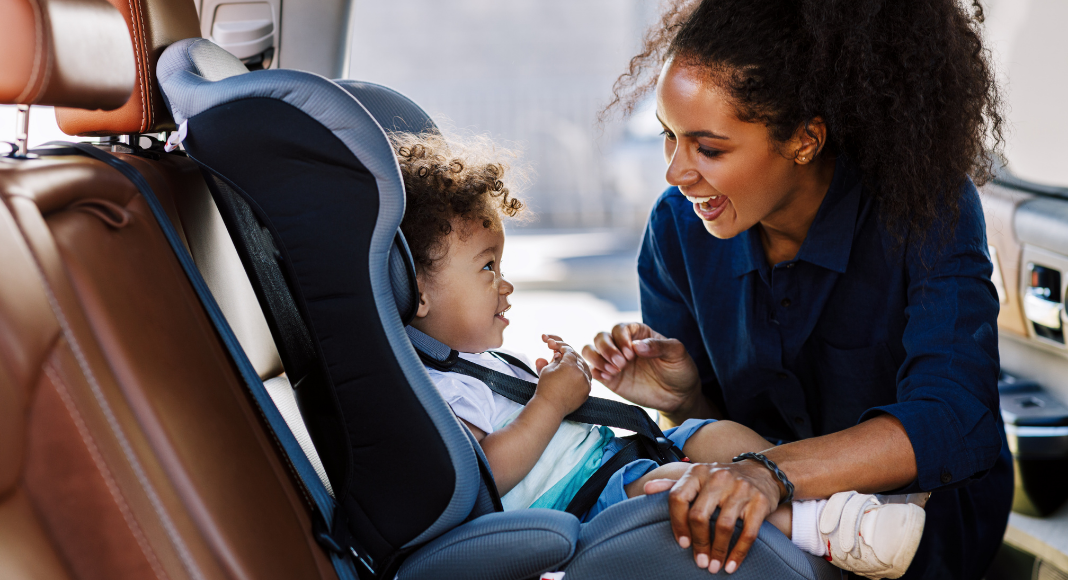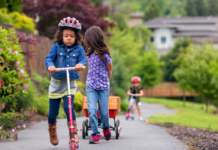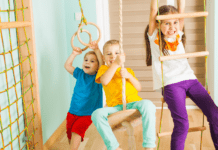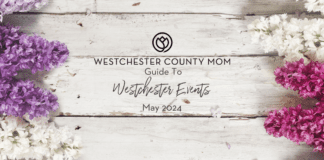 Even though I’ve been a practicing psychotherapist for nearly 17 years (11 of those spent exclusively with children and families), I am still subject to crazy parenting guilt. It creeps up on me in my weakest, most exhausted, or chaotic moments, whispering that something I’ve done has irreparably damaged my child. It’s a wildly irrational thought that breeds panic, straight out of my emotional brain and into my heart.
Even though I’ve been a practicing psychotherapist for nearly 17 years (11 of those spent exclusively with children and families), I am still subject to crazy parenting guilt. It creeps up on me in my weakest, most exhausted, or chaotic moments, whispering that something I’ve done has irreparably damaged my child. It’s a wildly irrational thought that breeds panic, straight out of my emotional brain and into my heart.
It’s the first place my mind wants to go, even if I know better. And I can eventually get to a more logical place, but not before I’ve taken a few turns around that terrible landscape.
I think the guilt goes with the territory of parenting, whether you are a new or seasoned parent. Sometimes, it even starts before they leave the womb! And it goes on insidiously, growing and latching on to every “parenting” decision because, let’s face it, we are ALWAYS thinking about our children.
Their welfare is paramount to us, and so, while they are little creatures safely nestled in baby bumps, we agonize over the caffeine we’ve consumed in our morning coffee, forego mani/pedis for months because we are supposed to eschew salon fumes (“DOES it cause breathing problems?” we question), and grill our OBs mercilessly about whether we are eating enough to make little centimeters of growth match up with pre-established developmental targets.
And it doesn’t end once they are safely delivered into our eager arms; in fact, we’ve only just begun to walk the road of constant self-doubt as we weigh the questions of Ferberizing versus co-sleeping, homemade baby food versus jarred, store-bought food, and whether we are parenting failures for offering McDonald’s when they refuse to eat the healthier fare we put before them (and fantasized them happily sucking up).
Parenting is a hard road with no instruction manual nor any definitive way of checking off that we are making the right decisions.
I remember being consumed by guilt over many things, especially when I secretly compared myself to my fellow moms. When a friend’s baby learned to drink from a sippy cup six months before the parenting books set their benchmark for this milestone, my poor little eldest nearly choked because I was convinced it must be time for him, as well. (WHY isn’t HE sipping too? SHOULDN’T he be SIPPING?”). When other parents were getting their toddlers to feast on salmon and broccoli, I tortured myself repeatedly about my obvious failures because my child only wanted fries. I thought it had to be something I had done or some step that I had failed to take. The guilt was awful. It would come in waves, take over, and stay too long.
But then I would force myself to get an actual grip and stop the relentless second-guessing and self-questioning that eventually becomes a buzz of noise in the brain, making you feel awful and clarifying nothing. I would have to think things through, talk to people, research, and put the facts together.
My child had had an emergent birth and associated birth trauma; perhaps that contributed to his delays. He had food allergies; perhaps that limited what he would sample. Or perhaps he was just his own kind of kid, with his own tastes, and he didn’t want fish for dinner.
I could keep agonizing over the whys and wherefores, but that only served to make me miserable and turned mealtimes into tensely-anticipated power struggles where no one was satisfied. Eventually, I could give it over to the unknown and make a personal decision to move on, or I could keep trying. And really, neither was wrong.
It may seem like these are thoughts steeped in self-absolution. Perhaps they are defensive, or perhaps they are that God-awful word we’d do anything to avoid: EXCUSES. And what if they are? What I encounter, both within myself and in parents that I treat or am friends with is that we all feel it, we all put ourselves through it, and we simply aren’t forgiving enough of ourselves. It’s as if we think that if we feel sufficiently guilty, that will somehow reverse a poor decision or magically prevent us from “messing up” again.
And yet, we forget that there are no hard and fast rules in parenting for a reason. Life is the total of our experiences, and it unfolds according to what we learn daily. That means that there isn’t anything that we can’t recover from (once we’ve gained a little perspective). While we may not be able to undo a decision, we can choose differently next time or use our mistakes as a springboard to other pathways never before considered.
I am proposing that self-forgiveness is the key to recovering what we wish we had done differently, and punishing ourselves relentlessly for what’s been chosen won’t make anything better. It doesn’t reverse the wrong, and it certainly doesn’t change anything. It does, however, sometimes drive us to overcompensate or inflate things that should have been put to bed to self-correct. And that’s not helpful either.
Sometimes, the greatest gift that we can give ourselves is the ability to acknowledge what we’ve chosen, observe how it makes us feel, and recognize that there are times when even the best intentions can go awry.
It’s only irrecoverable if we get stuck in a cycle of self-blame, sucking ourselves in as well as the very ones we intended to protect. Sometimes, we have to shout down those loud internal voices that won’t stop harping on our mistakes and remember that we can think ourselves out of any situation. That’s called recovery, and it is the real stuff that lives are built upon.
The amazing gift of life that we get to experience is not meant to be a perfect string of experiences, no matter what Facebook and Instagram photo stories would have you believe. It is a journey of decisions and stumbles, re-dos, and bumbles trying and testing until things go differently.
So be kind to yourself. Remember that you get to start all over again tomorrow, and there is more within your control than you think. Challenge those negative internal voices, take a deep breath, and take that first step beyond the “mistake.” The rest will follow. And if it doesn’t? Well, you’ll figure that out too, because that’s life.





















“Life is the sum total of our experiences, and it unfolds according to what we learn on the daily. That means that there isn’t anything that we can’t recover from (once we’ve gained a little perspective), and while we may not be able to undo a decision, we can choose differently next time, or we can use our mistakes as a springboard to other pathways never before considered.”
Such a wonderful passage. It is truly amazing that these words can flow so naturally from my mouth to my child, and yet I can lack the necessary self love needed to get by with sanity. Fortunately, I have at least come to recognize that fact.
Hi Laura,
Yes! It is so easy to guide others with compassion, and so much harder to apply that to ourselves. We are our own hardest taskmasters, yet deny ourselves the forgiveness and kindness that we need to replenish enough to meet the next obstacle. But I think that’s why we gravitate towards articles, information, resources, and people that serve as continual reminders to do better by ourselves. I think we innately know that we should be gentler with our SELVES, given all that we carry, and that is an optimistic reminder that we really are trying to do better, every single moment that we can. Thank you so much for your feedback!!! Take good care <3
Comments are closed.